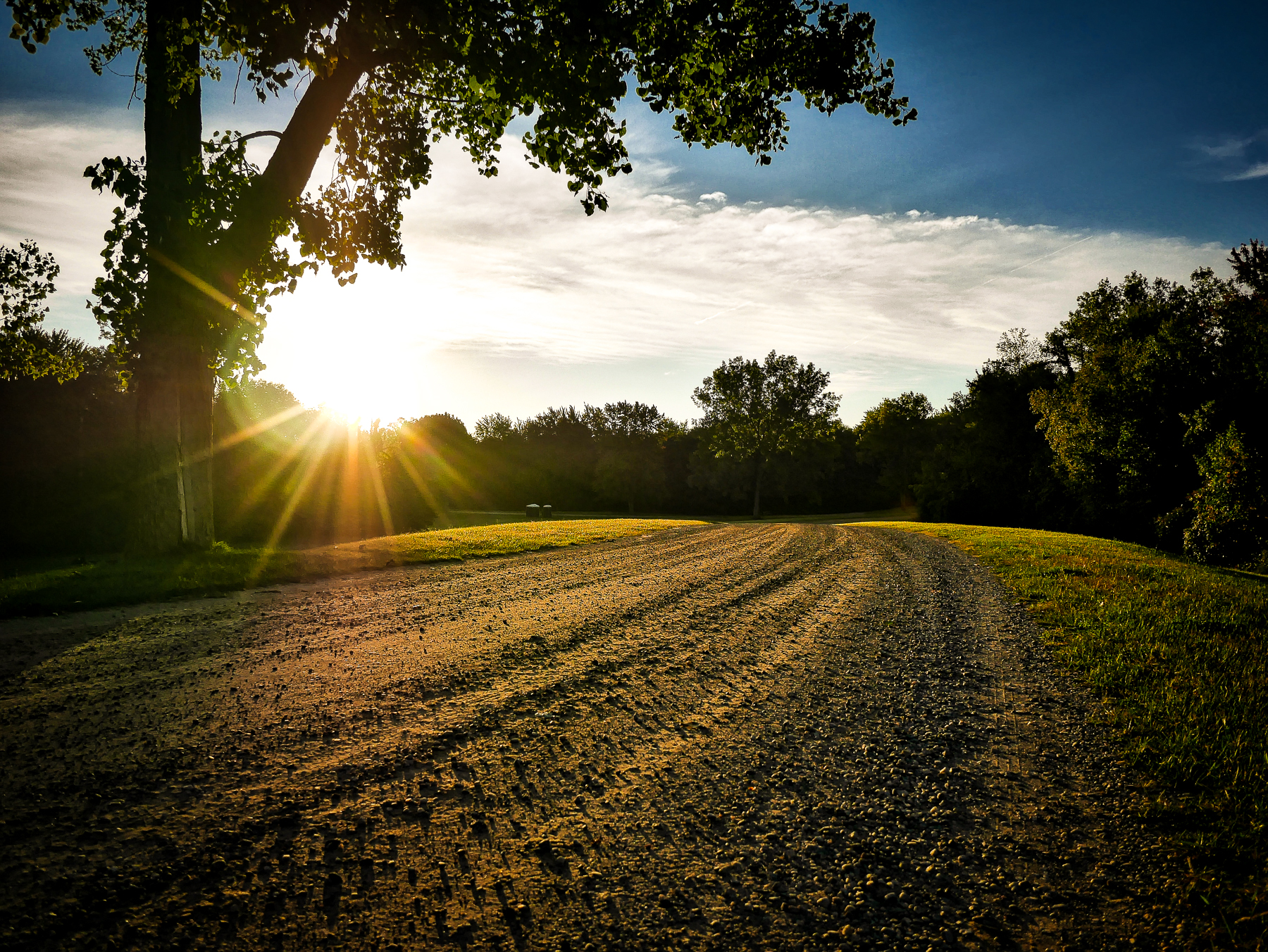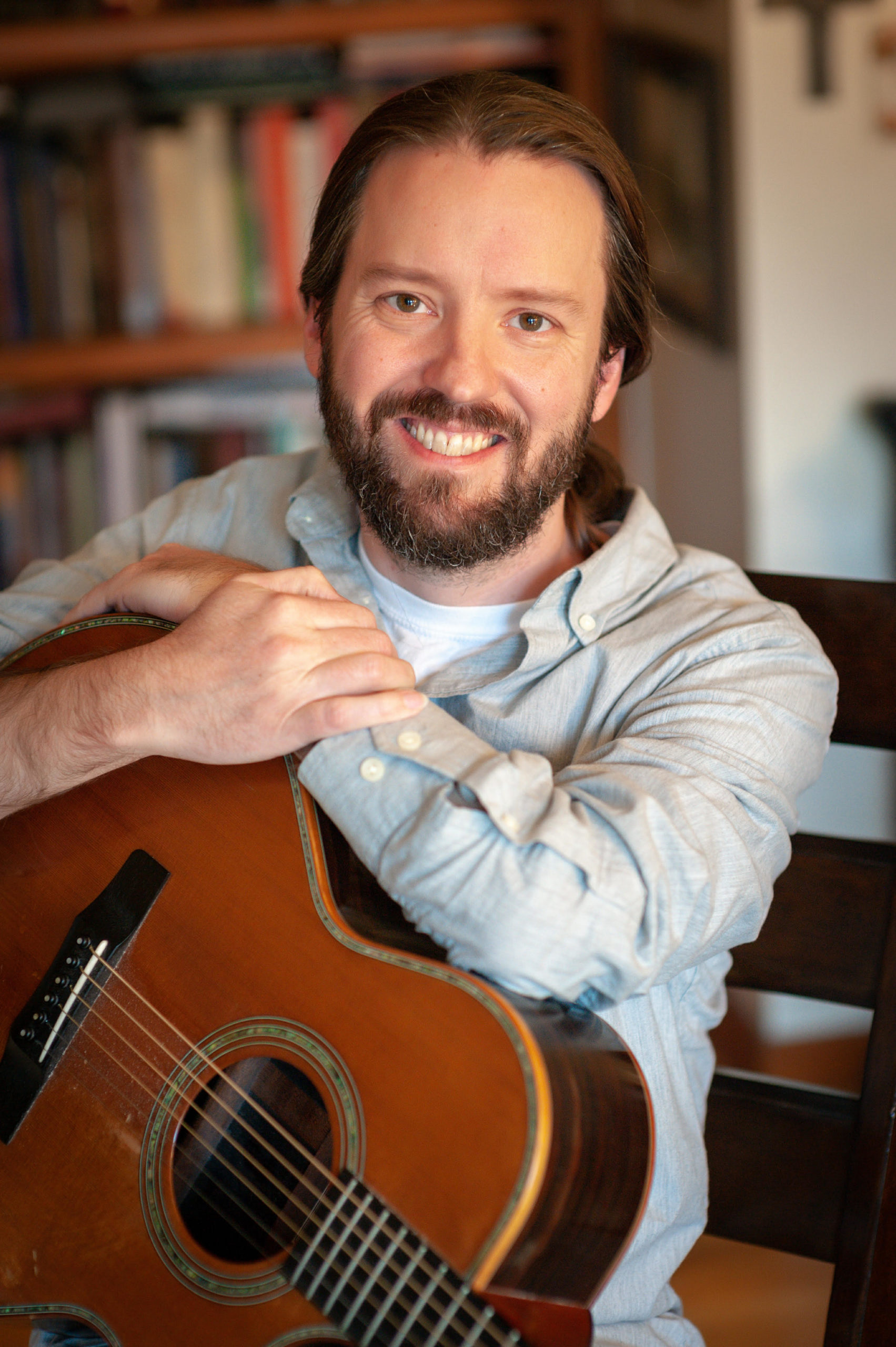Ever since the world fell, we’ve been in a long slow autumn. Have we ever even seen the world in its Springtime? Its Summer season? We are harvesting still what fruited so potently and beautifully before humanity took the long leap of faithlessness. What good we know now is the residual spray from a Fountain at the heart of things from which we have been speeding away since this world’s earliest days. As the world spins, circulating its seasons, humanity has really only ever known one long Fall.
And Christians have felt the chill of a coming Winter ever since Jesus departed. A Winter through which a far-off Spring had only recently become discernible in the promise of Christ’s return. And as the world slopes downward toward its Winter, Jesus urges us not to let our love grow cold. While many cheer for the apparent swelling of humanity’s progress (along with its pride), others wake from that shallow dream groggy and restless, feeling old before their time.
And yet, we are being renewed day by day.
As the world follows a slope of decay, the hearts of the reborn dare to rise. We dare to lift them up to the Lord. We dare to bear a sorrow borne up by an enduring hope. A hope that anchors our souls like a seed buried deep beneath the flood of dark soil that is the detritus of time. A hope that pushes up through it all, harkening to the voice that says,
“Lift up your hearts!”
We lift them up to the Lord!
It is just and right so to do.
But how is it just? How can we justify having hearts that rise in the midst of this endless fall?
Joy at the Core of Things
I am a happy person at my core. My family has often told me that I’m too serious, and it’s true that I am often sad. But in the deepest places I understand that the cosmos was founded upon the overflowing joy of the shared life of the Father, Son, and Holy Spirit. Joy is at the Center. Love is the first word, and Love will have the last word; because Jesus is the first and last Word. Much of my life I’ve found it difficult to believe in joy, and G.K. Chesterton has been one of the central voices that have helped me grow confident in its reality. On the last page of Orthodoxy, his personal account of coming to faith in Christ, he says:
“Christianity satisfies suddenly and perfectly man’s ancestral instinct for being the right way up; satisfies it supremely in this; that by its creed joy becomes something gigantic and sadness something special and small… Joy, which was the small publicity of the pagan, is the gigantic secret of the Christian.”
These days, I imagine the cosmos like an apple: the skin is sorrow, the rest (in every sense of the word) joy. That is the way things really are; even though the tough skin of sorrow seems to cover over absolutely everything, it remains very thin. When you look at the apple, the skin is the first thing you see—in fact, it is all that you can see. But you know better. And because we know better, we raise our flutes to call upon any would-be dancers to join us in these sagging streets to body forth the swing and sway, the vital grace and goodness moving at the heart of things in a great ballet that cries, “Amen, amen!” to God and His handiwork.
A Chill in the Air
But I am also often sad, and you don’t need me to give you a list of reasons to be sad. You already know them well enough. They abound, don’t they? We live in a seemingly everlasting autumn where all that joyfully bloomed in some long-gone, unknown Springtime, all that raised its face to the bright heat of a long-past Summer, now loses its green and tilts towards the forest floor where the whole apple—joy and sorrow alike—sink into the soil of decay. Beauty lost. Loved ones torn away. The helpless ravaged. Wickedness and time remain seemingly unstoppable in their endless forward march, until the forest garden is left a trampled battlefield so thoroughly brutalized that nothing tender, nothing green dares lift up its head.
And then the chill returns, running in little shockwaves up and down our arms and legs, our very skin constricting. In those latter days, because of the increase of wickedness, the hearts of many will grow cold.[1] Men and women will no longer believe in apples, only the bitter peel. The taste for joy lost in the face of evil, we will be tempted to become mere skins ourselves: skins that cease to carry within us the sweetness of God’s voice, that cease to pour out the drink of great thanksgiving, that cease to care at all. No visions, no dreams, no joy set before us. And the pipers in the wilderness play a dirge; they play the saddest song they can manage, but no one bothers to cry.
Of Dirges and Dancing
We sang a dirge,
but you did not cry.
We played the flute,
but you did not dance.
![]()
I’ve long been fascinated by those four lines in Matthew 11:17. In context, Jesus puts them into the mouths of “that generation”; in other words, Jesus and John aren’t dancing to the beat kept by the standard cultural drummers. John fasts and they call him possessed; Jesus eats and he’s called a sinner. They can’t win for losing.
But I can’t help but imagine the ironic reversal of that four-line lament. What if Jesus spoke it in His own voice on His and John’s behalf? John calls for repentance, and so few lend their tears to his lament. Jesus sings out that the time for releasing captives and binding up the brokenhearted has come, and hardly a toe in the place taps. Tough crowd: they laugh at the sad scenes and grumble during the jokes.
Dirges and dances are both very real parts of our experience, but the Gospel—by tuning us to reality—transforms how we recognize what’s really lamentable and what calls for a hoedown. Maybe another way of putting it is that the world calls what’s good evil and what’s evil good.
For instance, there’s a certain flavour of despair in too much of the dancing you find in our times; it’s primarily about escape and sex, because any real transcendent cause for celebration is disbelieved. A huddle of very sad people dancing for all the wrong reasons. It’s right to eat, drink and be merry (for tomorrow we resurrect!), but too many only know how to simulate real merriment (for tomorrow we die). Theirs is a form of celebration that has lost all vision of the warmth and joy at the core of things; it has grown cold and despairing, seeking in unmoored sensuality the only warmth left to believe in. These “dance to forget,” as the Eagles put it. At the other extreme, we follow Jesus, that “glittering joker [who is] dancing in the dragon’s jaws.”[2]
Somehow the Gospel rights our eyes; and being “the right way up”, we can begin to discern what’s still upside down.
All humankind’s endless ‘upward progress’ seems to bend us suspiciously earthward like branches weighted by snow and ice, while the old (true) myth of a dying God slumped on a tree lifts our eyes (and our hearts) to a heavenly vision of incomprehensible hope.
An Update on Muscadines
Over the last few weeks, I’ve been looking forward to taking a long walk along the Natchez Trace where I spotted muscadine leaves a couple of months back. Today, I parked my trusty Vandalf the White (a converted Sprinter van for touring), grabbed a brown paper sack, and headed out into the Mississippi heat (90˚F) and humidity (82%) looking for wild grapes.
These don’t grow in great clusters like typical grapes; the sprawling vines clamber all over existing trees and produce little clumps of three or four grapes, if you’re lucky. I waited a little too long, and all the low-hanging fruit had already been nabbed by deer and maybe a few other muscadine hunters like myself. But I managed a neat little harvest, although my heart grieved when I saw the biggest, most fruitful vine I’ve ever come across high up in the treetops against the sky far beyond my reach. Hundreds and hundreds of ripe, dark purple grapes and no way to get near them.
On the way back, the air gave up trying to hold all that suspended humidity, and a little rain pattered down on me. Tiny plashes left dark spots on my brown paper bag. Water mingled with beaded sweat, and I spat out the seeds from my gather-up, tasting the magic mingling of the muscadine’s honeyed core and thick tart skin. Dirges and dances taken together, trustingly.
In this season, we practice weeping with our Jesus, the Weeping One; and we practice dancing with our Jesus, the Lord of the Dance. We take them together, trusting that the Lord will carry us through whatever comes. If it is sad, we, along with Him, call it what it is. And if it is joy, and always there is joy for Joy always and ever IS, we, along with Him, say “Amen, amen”. And along the long walk in the midst of the Long Fall toward Winter—a Winter that will end with the world’s first Spring since Eden’s ruin—we lift up our hearts. It is just and right that we do so.
Yes.
Amen.
![]()
[1] Matt. 24:12 NIV
[2] Bruce Cockburn. “Hills of Morning.” Dancing in the Dragon’s Jaws, True North Music, 1979.
The featured image is courtesy of Aaron Burden.
We are grateful for Aaron’s keen eye, his skill, his faithful service to the Lord, and his generosity to all.
Matthew Clark is a singer/songwriter and storyteller from Mississippi. He has recorded several full length albums, including a Bible walk-through called “Bright Came the Word from His Mouth” and “Beautiful Secret Life.” Matthew’s current project, “The Well Trilogy,” consists of 3 full-length album/book combos releasing over 3 years. Each installment is made up of 11 songs and a companion book of 13 essays written by a variety of contributors exploring themes around encountering Jesus, faith-keeping, and the return of Christ. Part One, “Only the Lover Sings” is available both as an album and as a companion book.
Matthew also hosts a weekly podcast, “One Thousand Words – Stories on the Way,” featuring essays reflecting on faith-keeping. A touring musician and speaker, Matthew travels sharing songs and stories in a van called Vandalf.
Leave a Reply
A Field Guide to Cultivating ~ Essentials to Cultivating a Whole Life, Rooted in Christ, and Flourishing in Fellowship
Enjoy our gift to you as our Welcome to Cultivating! Discover the purpose of The Cultivating Project, and how you might find a "What, you too?" experience here with this fellowship of makers!


Add a comment
0 Comments